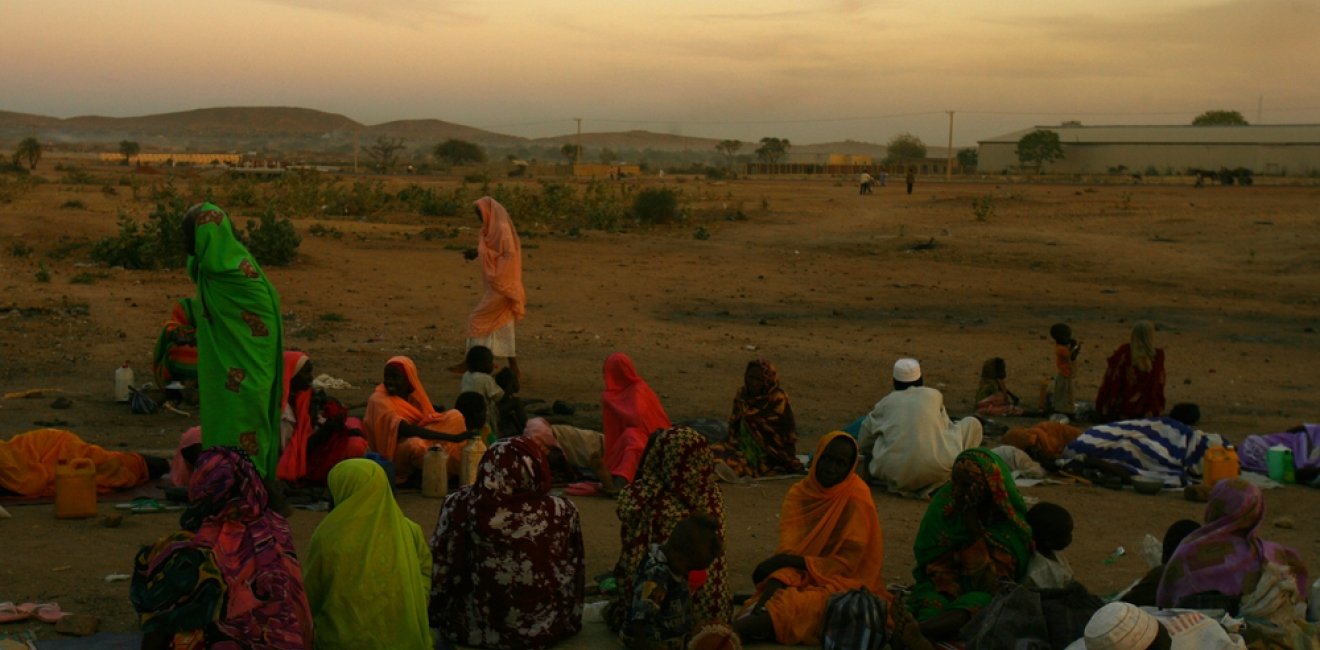Conflict in Sudan: Widespread Sexual Violence
Zeinab Mohammed Salih, MEP Visiting Arab Journalist Fellow, reports on the sexual violence that is spreading across war-torn Sudan.

A blog of the Middle East Women's Initiative
Zeinab Mohammed Salih, MEP Visiting Arab Journalist Fellow, reports on the sexual violence that is spreading across war-torn Sudan.

Some women shared their stories with me, but many were unable to speak about their trauma.
Only a few years ago, the world celebrated the women-led revolution in Sudan that ousted the former dictator Omer El-Basher after 30 years in power. Women were fed up with his government. Those who used to live in the urban areas experienced the humiliating public order laws: they were arrested and flogged for wearing trousers or walking around with no headscarves.
Those who used to live in the west and the south were subjected to sexual violence during long periods of conflict. Rape was used as weapon in those wars. During the protests across the country led by women from all walks of life, I remember seeing elderly women and little girls giving water and juices to the protesters who passed through their neighborhood streets.
However, after the success of the revolution, most women were sidelined. In the civilian government that briefly followed the coup that ousted El-Basher, led by the head of the Sudanese Armed Forces (SAF) General Abdul Fattah Al-Burhan and the paramilitary Rapid Support Forces (RSF), General Mohamed Hamdan Daglo Hemedti—who are now fighting over power—only those who came from historically dominant ethnic groups were represented.
Five years later, the news that Sudanese women’s bodies have become a battlefield for men fighting over power has shocked the world.
Since the beginning of the current war between the SAF and RSF, countless Sudanese women including middle-class women in the urban cities but especially those from the peripheries and considered ethically non-Arab, have been subjected to rape and other forms of sexual violence. Additionally, international aid workers were raped in Khartoum during the first days of the conflict, such as a Japanese aid worker who was working for the UN, as well as Ethiopian refugees living in the capital city, Khartoum.
Those who have survived the war are now facing a man-made poverty and hunger crisis, which has led many in parts of Khartoum to resort to prostitution to get food.
All of Sudan’s armed groups, including the army, the RSF, the Joint Forces (the former rebels in Darfur that are fighting the RSF alongside the army in north Darfur’s capital city, El-Fasher), and other rebel groups have been accused of raping those women; some of them using the need for food to coerce women.
In early January, the Joint Forces were accused of raping several women, abducting others, and killing 11 children from Al-Zurq, an Arab village and General Hemedti’s hometown, according to the reports from the village.
The RSF has also been accused of sexually abusing women in their controlled areas since the beginning of this war. A report by the Human Rights Watch accused the group of sexual enslavement and rape of women from the Nuba Mountains, a marginalized and a war-torn area of Sudan’s peripheries where a civil war has been ongoing since 2011 and that was bombed indiscriminately by the air force during Omer El-Basher’s rule. As a result, thousands of people had to flee their homes and they were bombed.
One of the most horrifying and traumatizing stories that I worked on as a journalist covering the war since its start was from El-Geneina, the capital of West Darfur. I visited the city last year after two major massacres and found out that almost all the of women of a single neighborhood were raped by the Arab militias allied with the RSF. Some Arab women were also raped for marrying non-Arab men. Some women shared their stories with me, but many were unable to speak about their trauma. Additionally, university students hailing from different parts of the country were raped by the rival group of the Masalit people who fled the city to eastern Chad.
In Darfur, sexual violence has been occurring since the beginning of the war in 2003, when the non-Arab groups of the region took up arms against the northern Sudanese Arab- and Arabized-dominant governments of Khartoum. The governments in the center responded by arming the Arabs of the west to oppress their rebellion. The RSF and their allies grew out of that policy of Khartoum’s government.
Women’s bodies are the battlefield for men in this East African nation that has been witnessing wars since before its independence from the Great Britain in the town of Torit (in now South Sudan). Most cases and stories have gone untold; only 2% of cases are reported, according to a women’s rights activist in an interview.
One of the major reasons sexual violence is repeated in Sudan is impunity—none of the perpetrators were held accountable. The whole political system that protects them. Whenever there is a change, politicians compromise with the military, sacrificing people’s rights.
The views represented in this piece are those of the author and do not express the official position of the Wilson Center.


The Wilson Center’s Middle East Program serves as a crucial resource for the policymaking community and beyond, providing analyses and research that helps inform US foreign policymaking, stimulates public debate, and expands knowledge about issues in the wider Middle East and North Africa (MENA) region. Read more


The Middle East Women's Initiative (MEWI) promotes the empowerment of women in the region through an open and inclusive dialogue with women leaders from the Middle East and continuous research. Read more


The Africa Program works to address the most critical issues facing Africa and US-Africa relations, build mutually beneficial US-Africa relations, and enhance knowledge and understanding about Africa in the United States. The Program achieves its mission through in-depth research and analyses, public discussion, working groups, and briefings that bring together policymakers, practitioners, and subject matter experts to analyze and offer practical options for tackling key challenges in Africa and in US-Africa relations. Read more



